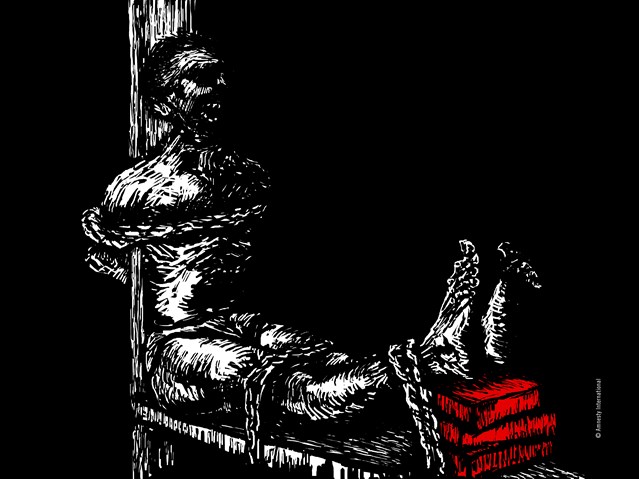Torture, forced confessions and abuse still 'rampant' in China
Amnesty International uncovers use of medieval instruments, including spiked rods and torture chairs

A free daily email with the biggest news stories of the day – and the best features from TheWeek.com
You are now subscribed
Your newsletter sign-up was successful
Political activists and their lawyers are being routinely tortured by authorities in China, according to an investigation by Amnesty International.
The new report, based on interviews with dozens of human rights lawyers, contains shocking details of arbitrary detention, abuse and forced confessions.
Researchers discovered that a range of medieval torture instruments were being employed, including spiked rods and electric batons. One device commonly used is known as a Tiger Bench.
The Week
Escape your echo chamber. Get the facts behind the news, plus analysis from multiple perspectives.

Sign up for The Week's Free Newsletters
From our morning news briefing to a weekly Good News Newsletter, get the best of The Week delivered directly to your inbox.
From our morning news briefing to a weekly Good News Newsletter, get the best of The Week delivered directly to your inbox.

Using the torture device, a detainee's body is tightly strapped to bench and bricks are gradually added under the victim's feet, forcing their legs to bend backwards.
Despite torture being outlawed in China and repeated promises of judicial reform, such practices remain rampant in nearly every part of the country, warns Amnesty.
"For the police, obtaining a confession is still the easiest way to secure a conviction," said report author Patrick Poon. "In a system where even lawyers can end up being tortured by the police, what hope can ordinary defendants have?"
The foreign ministry has disputed the report's findings, insisting that "China is a country governed by the rule of law" and that the government was working to bring "fairness and justice” to all.
A free daily email with the biggest news stories of the day – and the best features from TheWeek.com
The investigation comes just a week before the United Nations anti-torture committee is set to review China's human rights record.